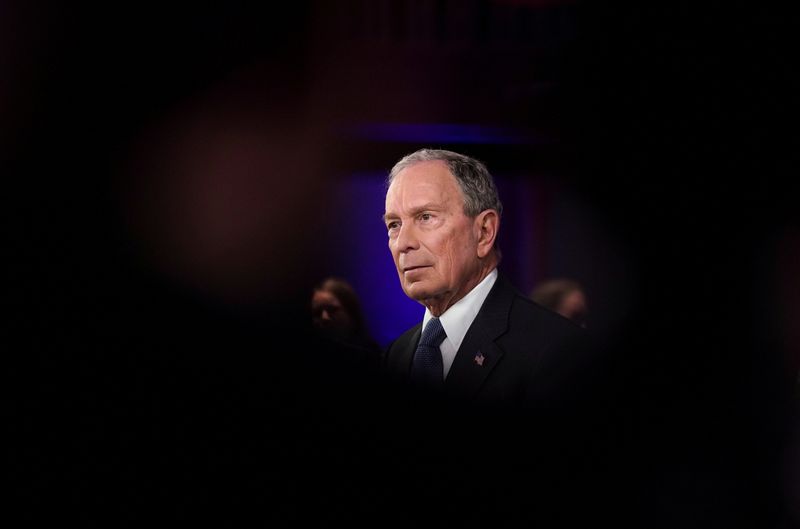By Valerie Volcovici
WASHINGTON (Reuters) -Former New York City Mayor Michael Bloomberg launched an $85 million campaign to block the planned construction of plastic and petrochemical plants across the U.S. on Wednesday, modeled on his decade-long effort to shutter coal plants.
Bloomberg, the billionaire businessman who currently serves as a United Nations special envoy on climate ambition, said his philanthropic organization's Beyond Petrochemicals campaign will "turbocharge" efforts by local communities in places like Louisiana's Cancer Alley, Texas, and Appalachia to block the permitting and construction of heavy emitting plants.
The campaign takes aim at the rapid expansion of U.S. petrochemical and plastic pollution. The International Energy Agency said the plastics and petrochemical industry will exceed coal-fired carbon emissions by 2030 and account for half of the growth in oil demand by 2050.
"This campaign will help ensure more local victories, support laws that protect communities from harm, and reduce the greenhouse gas emissions that are fueling the climate crisis," Bloomberg said in a statement.
The expansion planned by the industry could account for 15% of U.S. greenhouse gas emissions, which could make the U.S. miss its goal under the Paris climate agreement of halving its emissions by 2030, Bloomberg Philanthropies said.
At least 90 petrochemical and plastics projects have been proposed over the last decade, including 42 major construction projects that will release greenhouse gas emissions and other hazardous air pollutants, according to the Environmental Integrity Project, which tracks the planned buildouts.
Plastic and petrochemical trade groups called Bloomberg's campaign a "misguided" effort to address plastic waste.
"If Mr. Bloomberg wants to help people, it couldn’t be more clear that plastic saves lives and improves our quality of life," said Matt Seaholm, president and chef executive of the Plastics Industry Association, adding that the industry has focused its spending on recycling programs. "His misguided campaign will create more problems than it solves.”
Front-line minority and lower-income communities that live where some of these projects have been proposed have led high-profile fights to block key air permits and force enforcement of environmental safeguards at existing facilities.
Just this month, activists in St. James Parish in Louisiana claimed victory when a judge revoked key air permits issued by state regulators for a plastics project planned by Taiwan's Formosa Plastics and when the state canceled plans to build a methanol plant after nearly a decade.
"Investments like these give the communities that have been disproportionately impacted by this type of environmental racism a fighting chance," said Beverly Wright, executive director of the Deep South Center for Environmental Justice.
Bloomberg has spent over $500 million to support the Sierra Club's Beyond Coal campaign, which originally aimed to retire 30% of the U.S. coal fleet by 2020 but ended up accelerate the retirement of over 60% of coal plants by that year. It has expanded to target gas infrastructure.

After a failed presidential bid in 2020, Bloomberg has continued to bankroll climate campaigns and work on climate diplomacy in his UN role.
The campaign focused on public advocacy and legal action to reach settlements with utilities to hasten the closure of their aging coal plants and replacing them with renewable energy.